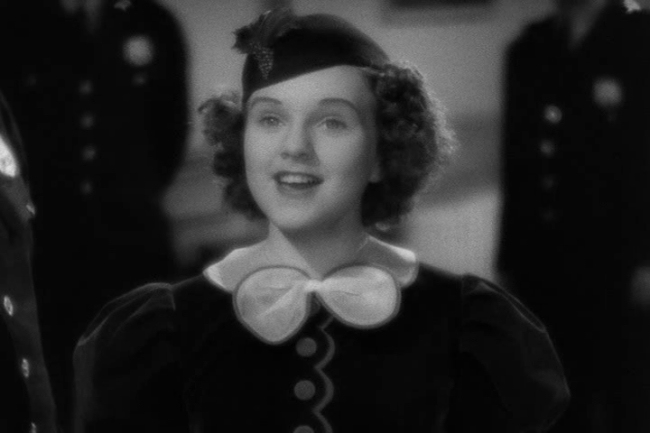
Remarriage is an unthinkable disaster for a parent, at least according to the underlying morality of 1936's Three Smart Girls. Starting out as a lifeless, somewhat quaint revel in the preciousness of children, the film becomes a mildly entertaining screwball comedy in its second half.

All three girls put together aren't smarter than a young Ray Milland who plays a wealthy English nobleman named Michael Stuart. The movie picks up in the middle when a scheme to get a drunken friend to pose as a Count to woo away the gold-digging wouldbe second wife for the girls father goes awry when the girls mistake Michael for the faux Count and Michael plays along. He has a thing for one of the girls, Kay (Barbara Read), and enjoys having the secret from her, watching her alternately vexed and gleeful in ignorance of his identity. He would be unbearable in his smugness if Milland weren't so charming.

Despite this being the main romantic plot, it's the youngest daughter, Penny, who's framed as the star of the film. She's played by Deanna Durbin who's introduced in the opening credits as Universal's great new discovery. I guess she was, since the film and its sequels saved the studio from financial troubles, according to Wikipedia. Incredibly, this movie was nominated for Best Picture. To think at around the same time Universal was making some of their great, classic horror films, this movie was considered to be the studio's big audience and critical darling.

Durbin is cute and shows real talent as a soprano singing three musical numbers--all three of which drag the movie to a halt, though, following the conventional wisdom at the time on how proper musical numbers in films should be, the kind of thing that Fred Astaire and Ginger Rogers were at the time busy rebelling against.

No comments:
Post a Comment